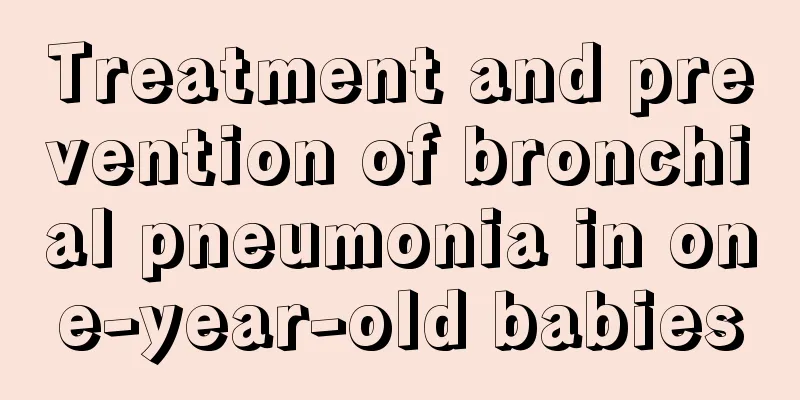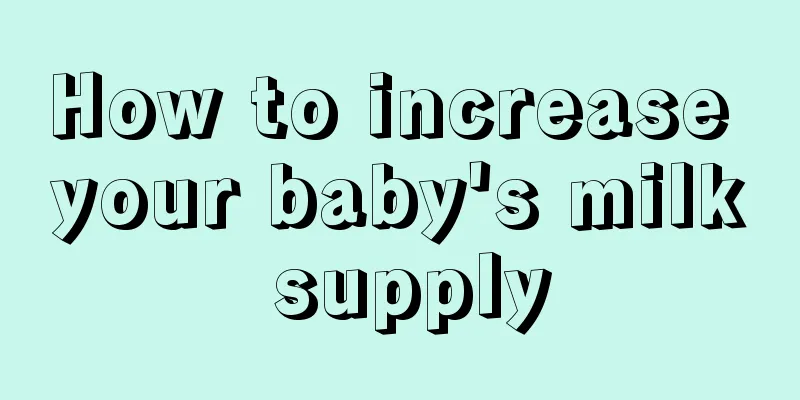Treatment and prevention of bronchial pneumonia in one-year-old babies

|
Bronchopneumonia in one-year-old babies is mostly caused by the child’s low resistance or immunity. This is also a disease that children often get nowadays, which makes parents very worried. Especially one-year-old children are so young, which makes parents even more anxious. Let us learn about the treatment and prevention of bronchopneumonia in one-year-old babies? Let all parents be able to deal with this disease well. Infant bronchopneumonia is the most common pneumonia in children, and is more common in the cold seasons of winter and spring. In developed countries, infant pneumonia is mainly caused by viruses, while in developing countries, it is mainly caused by bacteria. Pathogenic microorganisms mostly invade through the respiratory tract, and a few enter the lungs through the blood. Infant bronchopneumonia generally has symptoms of fever, cough, and shortness of breath. Bronchopneumonia can be diagnosed by hearing moderate or fine moist rales in the lungs or changes of pneumonia on X-rays. After confirming bronchopneumonia, further information should be provided on the possible pathogens causing the pneumonia and the severity of the disease. If the patient has recurrent infections, the primary disease or cause leading to the recurrent infections should be identified as clearly as possible. Infant bronchopneumonia generally adopts comprehensive treatment, the principles of which are to control inflammation, improve ventilation function, symptomatic treatment, and prevent and treat complications. In general, the air in treatment and care rooms should be well ventilated and the temperature and humidity should be appropriate. A nutritious diet. For critically ill children who have difficulty eating, parenteral nutrition can be given. Change body position frequently to reduce lung congestion and promote absorption of inflammation. At the same time, pay attention to isolation to prevent cross infection. Pay attention to water and electrolyte balance. Only timely treatment of infant bronchopneumonia can prevent the disease from worsening and ensure timely recovery. 1. Improve respiratory function. 1) Maintain a comfortable ward environment: ensure good air circulation, appropriate temperature and humidity; keep the patient as quiet as possible to reduce oxygen consumption; 2) Those with breathing difficulties can use a semi-recumbent position and change positions frequently to reduce lung congestion and prevent atelectasis; 3) Give oxygen; 4) Use antibiotics as prescribed by the doctor to promote gas exchange; 2. Keep the airway open. Treatment and prevention of bronchopneumonia in one-year-old babies. Now everyone has understood it through the above explanation. Only by combining treatment and prevention well can we ensure that the child will not get bronchopneumonia in the future. During treatment, special attention should be paid to maintaining air circulation in the child's living environment. It is best to provide the child with a quiet environment, which is more suitable for recuperation. |
<<: What to do if children's immunoglobulin A is low
>>: Why are baby's gums white?
Recommend
How many months can a baby be held upright?
Babies are very cute, and their tissues and organ...
What are the small bumps on my baby’s wrists?
Many parents now believe that children cannot alw...
Is it good to clean teeth for children?
Modern people pay great attention to teeth, becau...
Newborn vomits yellow-green liquid
If a newborn vomits yellow-green liquid, it is co...
How to take care of children's teeth?
For children, their physical health is something ...
Causes of infection of cytomegalovirus IgG-positive newborns
Disease is like a devil, everyone resists it. Vir...
Red spots on chest and arms
Some friends found red spots on their chest and a...
Do middle school students and children with ADHD need treatment?
Speaking of ADHD in children, I believe many pare...
What to do if your child has a stuffy nose
Nasal congestion is very painful, because in addi...
Precautions for feeding premature infants at 31 weeks
Because every pregnant woman's physique is di...
The best age for brushing teeth
We all know that many parents now pay special att...
Symptoms and treatment of sinusitis in children
The group most susceptible to sinusitis is childr...
There is phlegm in children's lungs. Four tips can clear it up
In daily life, many friends are troubled by the p...
Children's allergic rhinitis folk remedies
Allergic rhinitis in children is a common and fre...
What to do with children's lymphadenopathy
Pediatric lymphotubercosis is a primary infection...









